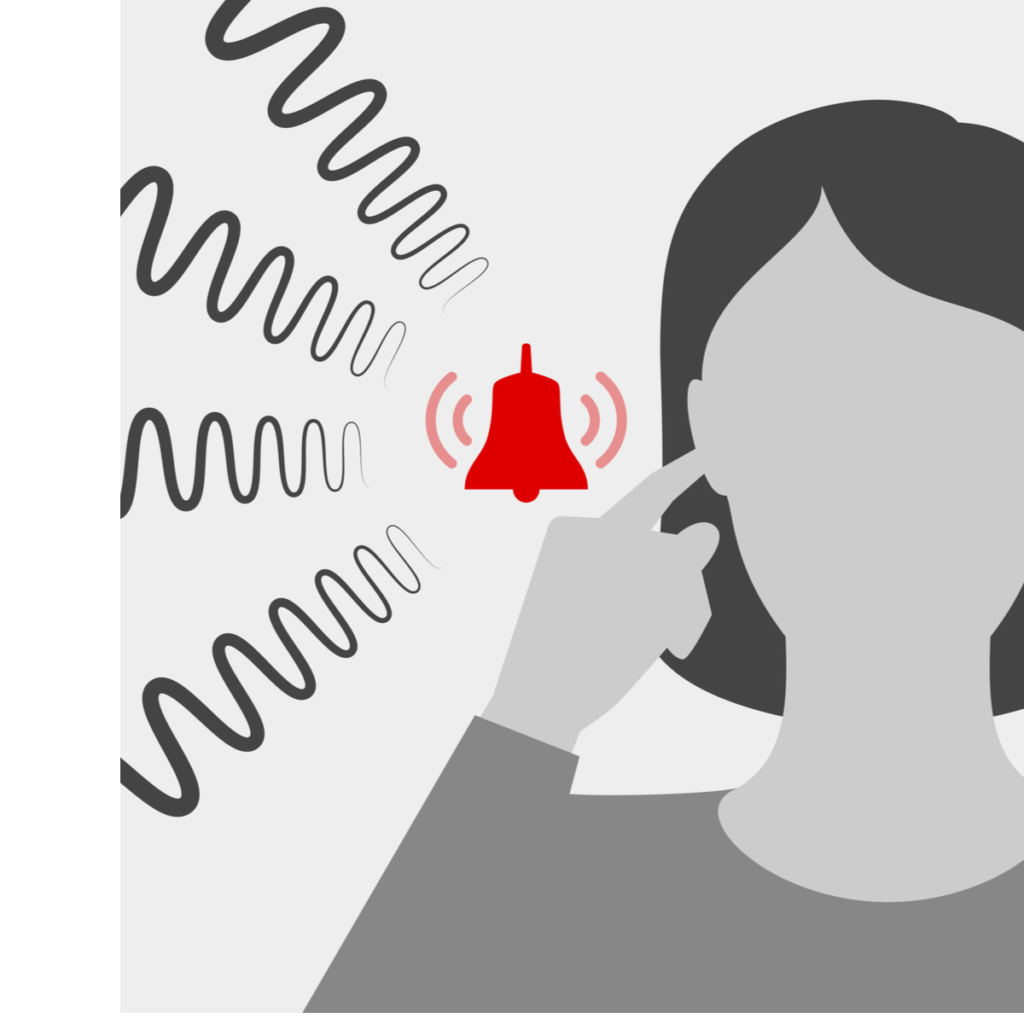Woke Up With Continuous Ringing in One Ear

Tinnitus in one ear only? Here's what it means
Tinnitus is the sound of ringing, clicking, whooshing, or whistling in your ears that isn't coming from an external source. The most common cause of Tinnitus is hearing loss however, a variety of things can lead to the condition; from emotional stress to underlying medical conditions like anemia to some types of tumors, and even too much nicotine or alcohol. But what does it mean when you experience Tinnitus in one ear only? The causes of Tinnitus in one ear only can be different from the causes of Tinnitus experienced in both ears, here we explain unilateral Tinnitus, and how to get rid of Tinnitus in one ear.
Tinnitus in one ear only (unilateral Tinnitus)
While bilateral Tinnitus (ringing in both ears) is quite a common condition, some forms of Tinnitus should prompt you to seek a medical evaluation; these include pulsatile Tinnitus, Tinnitus which causes dizziness, and Tinnitus in one ear only, as all these forms of Tinnitus could be indicative of underlying medical conditions.


Causes of Tinnitus in one ear only
Tinnitus in one ear only is less common than bilateral Tinnitus and can be caused by a range of things, from a relatively benign build-up of earwax to more serious underlying health conditions. If you are experiencing Tinnitus in one ear only, it is important you seek a medical assessment, to find the exact cause of the condition. Some common causes of Tinnitus in one ear only include:
- Earwax: Tinnitus in one ear only can be caused by a build-up of excess earwax. Too much earwax can cause a build-up of pressure on the inner ear, leading to Tinnitus. A doctor or audiologist can easily remove this excess ear wax and relieve the condition.
- Ménière's Disease: Ménière's Disease is a condition which is characterised by a buildup of fluid in the inner ear. While the cause of Ménière's Disease is unknown, it often leads to episodes of vertigo, pressure felt in the inner ear, and Tinnitus. With Ménière's Disease sometimes characterised by Tinnitus starting in one ear and moving to the other, if you are experiencing Tinnitus in one ear only, it is important to see a doctor to rule out the condition.
- Multiple sclerosis: Multiple sclerosis (MS) is a condition which sees your body attacking its own healthy nerve sheaths, causing issues with communication between your brain and the rest of your body. MS can cause auditory nerve damage, disrupting the signals between your brain and your ears. This can cause hearing loss or Tinnitus in one ear only.
- Cancer: Anything which disrupts the nerves in your ear or creates pressure within your ear can result in unilateral Tinnitus. Cancer can be a contributor to Tinnitus in one ear only in many ways, from a tumour in your head or neck creating pressure in your ear to cancerous cells disrupting your auditory nerves.
- A ruptured eardrum: Eardrum ruptures or perforations can be caused by infections, physical injuries or acoustic injuries (noises which were too loud). This can lead to hearing loss, physical pain, and Tinnitus in one ear only.
- Benign ear cysts: Known as Cholesteatoma, cysts within your ears can be caused by cells clumping together and creating an air or fluid-filled sac. This small sac can then grow from your eardrum towards your middle and inner ear creating a build-up of pressure, resulting in everything from leaking fluid to numbness in your face and Tinnitus in one ear only.

Treatments for Tinnitus in one ear only
If you do experience Tinnitus in one ear only, it's essential that you have it investigated further. The first step would be to make an appointment with an Audiologist for a full diagnostic hearing test. The best way to treat the Tinnitus depends on what the root cause is. If the issue is a build-up of earwax, this can be removed easily by your doctor or by purchasing ear wax softener from any Bay Audio store. If the issue is a Cholesteatoma, the cyst will likely need to be removed through surgery. Other root causes such as Ménière's Disease, MS, or cancer will need to have their own treatment plans which may then lead to the symptom of unilateral Tinnitus being resolved.
Need to talk to an audiologist?
Your local Bay Audio clinicians are on hand to answer any questions you have.
constantinothinscion1974.blogspot.com
Source: https://www.bayaudio.com.au/tinnitus/tinnitus-in-one-ear-only/
0 Response to "Woke Up With Continuous Ringing in One Ear"
Post a Comment